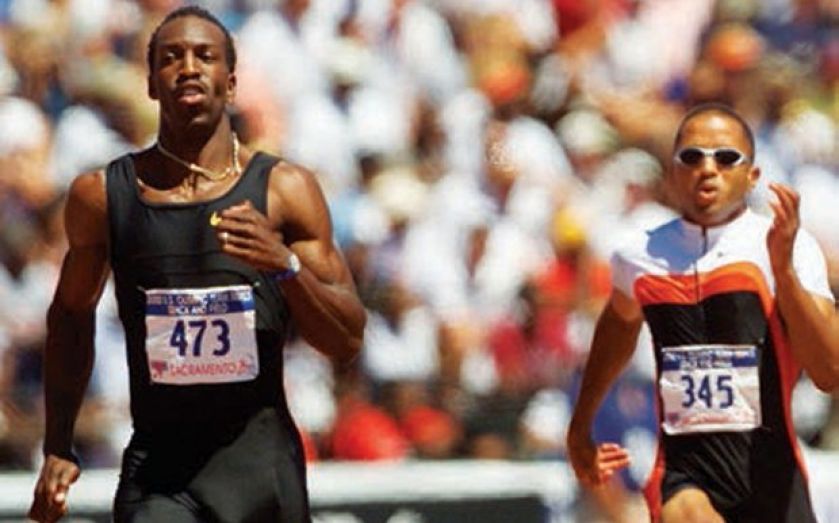World record holder Michael Johnson: Encourage employees to act like athletes when it comes to far-off goals

Claims that elite sports men and women have something to teach businesses are often (rightly) greeted with scepticism.
Sir Alex Ferguson’s lectures at Harvard Business School aside, the topic can be dominated by empty phrases like “hard work” and “will to win”, with few specific pieces of advice or strategies translating from one domain to the other.
But Michael Johnson, one of the most decorated runners of all time and still the 400m world record holder, is something of an exception among former elite athletes – he now runs a highly successful business. Michael Johnson Performance centres are used by professional sports teams worldwide to improve speed and conditioning. Johnson was in London last week for the Bloomberg Square Mile Relay race, so what parallels does he see between business and sports at the highest level?
“There are a lot of sports analogies used in business, especially when people are trying to motivate a team,” he says. But dedication, hard work and determination are just the bare minimum – it’s only at the very highest level that elite sports can actually impart some useful knowledge to other areas, he says.
Everybody thinks they work hard, but the dedication of an Olympian is something entirely different. It’s a relentless, obsessive focus on your own faults. “Every single day, you’ve got to ask: how do I get the absolute best from myself? What are my strengths, my weaknesses? How can I have the best training session that I possibly can right now?” When a fraction of a second is the difference between finishing first and last, the little things add up.
Johnson’s an evangelist for marginal gain theory – the idea that, by wringing an extra 1 per cent out of every aspect of a performance (or business), the aggregate effect can be decisive. The British cycling team famously adopted this way of thinking as part of their 2012 Olympic success – changing athletes’ mattresses and pillows, and keeping tyres wrapped up warm until the second before a race started. But Johnson says it’s an idea that companies don’t always make the most of.
“Some businesses tend to think in terms of these great big leaps forward, without properly breaking down all the smaller wins that are necessary to stay motivated in the meantime.” Johnson says he encourages his employees to emulate the routine of an athlete when thinking about far-off goals. Take the Olympics: it’s two years away, what do I need to do between now and then to win the gold medal? I’ll need to run a personal best in the final, which means improving drastically from where I am now – perhaps that means improving my start at training tomorrow.
But Johnson is the first to accept that the worlds of athletics and business are poles apart in some ways. In particular, learning to relinquish control has been a challenge for him, having been solely dependent on his own performances for so long. “It was something that I struggled with in the beginning. I had to figure out how to get the best out of other people, not just myself.”
Track your habits
Daily Deeds
£0.69
Daily Deeds sits somewhere between a to-do list and a quantified self app. You list certain tasks or activities that you would like to get into the habit of doing (going for a jog, cleaning the house, buying the milk etc.), and then it allows you to track how well you’ve done at seeing them through. Filling up the empty boxes with a tick is extremely satisfying, but it’s easy to fall into the trap of being over-ambitious. You can also turn your progress into a PDF report to share with friends.